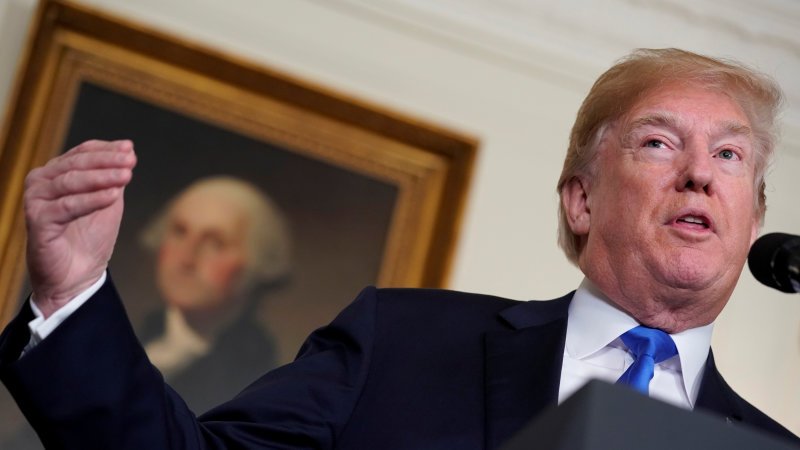Stocks down as automakers, Boeing lead China's hit list in trade spat

Shares in U.S. exporters of everything from planes to tractors fell on Wednesday after China retaliated against the Trump administration's tariff plans by proposing duties on key U.S. imports including soybeans, beef and chemicals.
U.S. automakers' products are prominent on China's list of tariff targets, yet shares of automakers ended higher on Wednesday as Wall Street stocks changed course in the afternoon when investors' trade fears subsided. Tesla shares closed 7.3 percent higher at $286.94, Ford shares gained 1.6 percent to close at $11.33, and GM shares were up 3 percent at $38.03.
Aircraft maker Boeing closed down 1 percent, weighing the most on the Dow Jones Industrial Average as documents from China's Ministry of Commerce and the U.S. manufacturer showed the move would affect some older Boeing narrowbody models. It was not immediately clear how much the tariffs would impact its newer aircraft.
Boeing said it was assessing the situation while analysts from JP Morgan said the proposals from China looked to have been calibrated carefully to avoid a major impact on the planemaker.
Fellow Dow component 3M lost as much as 2.4 percent. And farming equipment maker Deere lost nearly $10 per share at its lowest. The company urged the two countries to work toward a resolution to "limit uncertainty for farmers and avoid meaningful disruptions to agricultural trade."
The speed with which the trade spat between Washington and Beijing is ratcheting up — the Chinese government took less than 11 hours to respond with its own measures — led to a sharp selloff in global stock markets and commodities.
China was hitting back against U.S. President Donald Trump's plans to impose tariffs on $50 billion in Chinese goods with similar tariffs on U.S. goods even as Trump said the country is "not in a trade war with China."
"Everybody knew they were going to retaliate. The question was how strong of a retaliation. Today's move clearly shows that they mean business," said Adam Sarhan, chief executive of 50 Park Investments in New York.
China levied 25 percent additional tariffs on U.S. goods, but unlike Washington's list that covers many obscure industrial items, Beijing's covers 106 key U.S. imports including soybeans, planes, cars, whiskey and chemicals.
Trump denied that the tit-for-tat moves amounted to a trade war between the world's two economic superpowers.
"We are not in a trade war with China, that war was lost many years ago by the foolish, or incompetent, people who represented the U.S.," Trump wrote in a post on Twitter early on Wednesday.
Investors were wondering, nonetheless, how far one of the worst trade disputes in many years could escalate.
"The assumption was China would not respond too aggressively and avoid escalating tensions. China's response is a surprise for some people," said Julian Evans-Pritchard, Senior China Economist at Capital Economics, noting that neither side had yet called for enforcement of the tariffs.
U.S.-made goods that appear to face added tariffs in China based, on an analysis of Beijing's list, include Tesla electric cars, Ford's Lincoln auto models, Gulfstream jets made by General Dynamics and Brown-Forman Corp's Jack Daniel's whiskey.
Unlike Washington's list, which was filled with many obscure industrial items, China's list strikes at signature U.S. exports, including soybeans, frozen beef, cotton and other key agricultural commodities produced in states from Iowa to Texas that voted for Donald Trump in the 2016 presidential election.
While Washington targeted products that benefit from Chinese industrial policy, including its "Made in China 2025" initiative to replace advanced technology imports with domestic products in strategic industries such as advanced IT and robotics, Beijing's appears aimed at inflicting political damage.
Tobacco and whiskey, for example, are both on Beijing's list and are produced in states including Kentucky, home of Senate Majority Leader Mitch McConnell.
"It's more of a game of brinkmanship, making it clear what the cost would be, in the hopes that both sides can come to agreement and none of these tariffs will come into force," said Evans-Pritchard.
Beijing's list of 25 percent additional tariffs on U.S. goods covers 106 items with a trade value matching the $50 billion targeted on Washington's list, China's commerce and finance ministries said.
Related News
